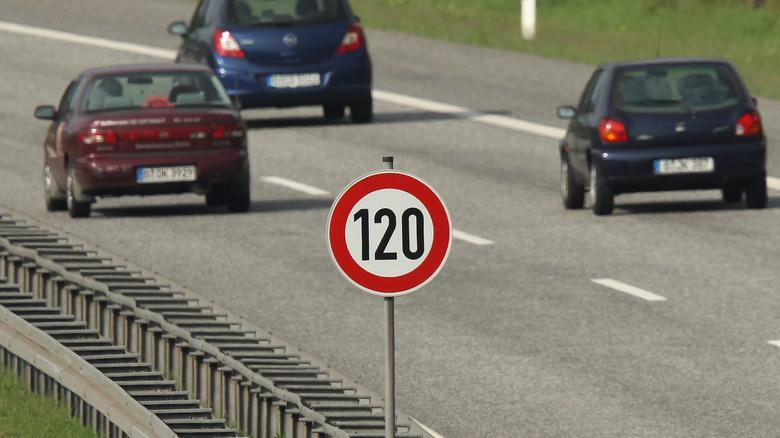Consequences of Reckless Driving on Germany’s Unrestricted Roads
The recent incident of a motorist caught driving at a staggering 199 mph on Germany’s famed Autobahn underscores the inherent risks associated with unchecked speed on unrestricted roads.While the Autobahn is celebrated for its lack of a general speed limit in certain sections, it remains imperative for drivers to adhere to the laws governing road safety. The hefty fine of over $1,000 imposed on the speeding driver serves as a crucial reminder that reckless driving can lead to severe repercussions, not just in monetary terms but also concerning safety on the roads.
Reckless driving behavior can have wide-ranging implications for road users, including:
- Increased Accidents: High-speed driving reduces reaction time, significantly elevating the risk of collisions.
- Legal Penalties: Traffic fines are only the beginning; drivers may face license suspension or more serious charges, especially if accidents result from their recklessness.
- Insurance Consequences: Speeding violations can lead to increased insurance premiums, as insurers view reckless behavior as high-risk.
- Public Perception: such incidents can tarnish the reputation of Germany’s unrestricted roads, leading to calls for stricter regulations.

The Legal Implications of Speeding Violations in Germany
The recent case of a motorist caught driving at an astonishing 199 mph on Germany’s famed Autobahn highlights the complex legal landscape surrounding speeding violations in the country. Unlike many nations, Germany’s highway system is renowned for its stretches with no specific speed limit.However, this does not grant drivers carte blanche to exceed safe limits, especially in areas marked by restrictions or under specific conditions. the law in Germany prioritizes road safety and dictates that motorists must always drive at a speed that allows for safe maneuverability, considering traffic, road conditions, and weather.
When a driver exceeds these unwritten yet critical guidelines, penalties can be severe. The consequences of speeding can include:
- Fines: The amount can vary significantly based on how much over the limit the driver is traveling.
- Points on driving record: Accumulating points can lead to further restrictions or even suspension of the driver’s license.
- Potential imprisonment: In extreme cases, such as reckless driving or causing an accident, jail time may be imposed.
In this instance, the hefty fine of over $1,000 serves not only as a punishment but also as a powerful deterrent, emphasizing the serious nature of driving violations-even in a country noted for its unique approach to highway speed regulations. The legal framework aims to ensure that all drivers are aware of their responsibilities and the potential repercussions of reckless behavior on the road.

Safety Concerns Around High-Speed Driving in Autobahn Zones
High-speed driving on the Autobahn is often romanticized, yet it raises notable safety concerns that cannot be overlooked. The recent incident involving a motorist clocked at 199 mph highlights the potential dangers of such reckless behavior. Despite the lack of an enforced speed limit in many sections, the realities of physics and vehicle dynamics caution against extreme velocities. At such speeds, even minor miscalculations or mechanical failures can lead to catastrophic outcomes, not just for the driver but for other road users as well. In fact, high-speed collisions have a much higher fatality rate due to the sheer force involved.
The implications of excessive speeding extend beyond individual incidents. An increase in high-speed driving can lead to a broader culture of recklessness on the roads. This is troubling considering the following factors:
- Accident Severity: Higher speeds result in greater impact forces, which can be devastating.
- Emergency Response: The rapid pace at which accidents occur makes it difficult for emergency services to react swiftly.
- Driver Awareness: At extreme speeds,a driver’s reaction time decreases,making it challenging to navigate obstacles or other vehicles.
As authorities impose fines and penalties for transgressions like the recent $1,000 citation,it becomes evident that attempts to regulate high-speed driving are essential for maintaining safety on Germany’s iconic roads. The question remains whether fines alone can effectively deter the allure of speed for thrill-seeking motorists.

Recommendations for Responsible Driving on Open Roadways
As incidents of extreme speeding, like the recent case of a motorist driving at 199 mph on Germany’s Autobahn, continue to make headlines, it’s vital to recognise the importance of responsible driving on open roadways. Such high speeds not only endanger the driver but also pose substantial risks to other road users. The following best practices can help foster a culture of road safety:
- Follow Speed Limits: Always adhere to the posted speed limits, which are designed to ensure the safety of all motorists.
- Stay Alert: Avoid distractions, including mobile devices, to maintain full concentration on the road and surrounding traffic.
- Be Mindful of Weather conditions: Adjust your driving speed and behavior according to adverse weather, including rain, fog, or snow.
- Use Turn Signals: Communicate your intentions clearly with other drivers to help minimize the risk of accidents.
- Maintain a Safe Distance: Keep a safe following distance, allowing ample time to react to sudden changes in traffic.
Moreover, education and awareness campaigns can play a critical role in promoting responsible driving habits.New drivers, in particular, should be equipped with the knowledge and skills necesary to navigate roadways safely. Encouraging participation in defensive driving courses can also reinforce the significance of remaining vigilant and respectful of traffic laws. Communities can take proactive measures by:
- Organizing Workshops: Host regular workshops and seminars focusing on the importance of safe driving practices.
- Implementing Road Safety Initiatives: Collaborate with local authorities to develop programs aimed at reducing speeding and enhancing overall roadway safety.
- Encouraging Peer-to-Peer Programs: Foster an environment where experienced drivers mentor new ones, sharing insights on responsible driving.
